PRINCIPAL OR
PRESCHOOL DIRECTOR
Explore what the Digital Strategy means for you

PRINCIPAL OR PRESCHOOL DIRECTOR
Explore what the Digital Strategy means for you
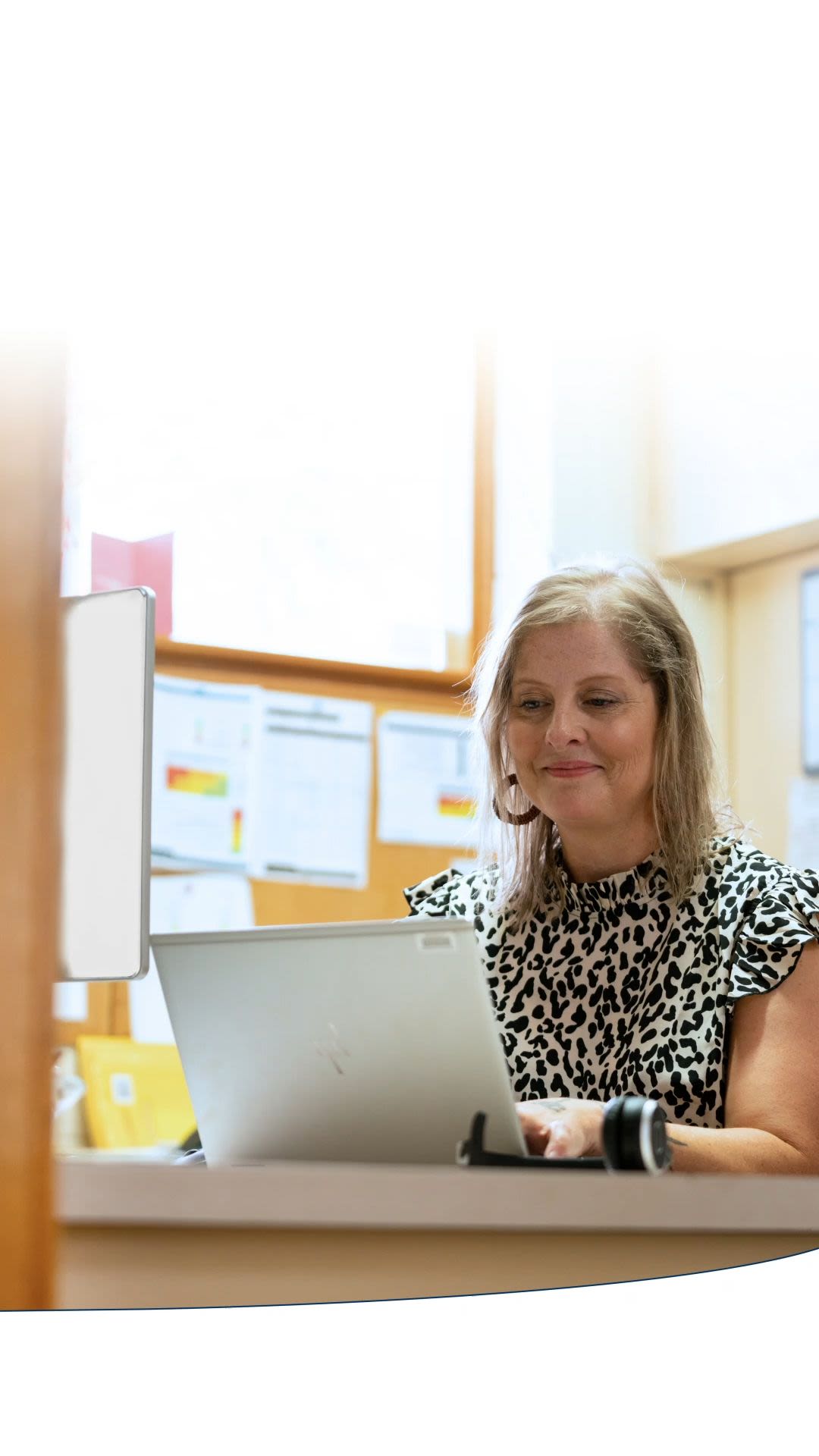
As a Principal or Preschool Director, you want to feel confident that your school or preschool is digitally enabled, and be empowered to shape your digital development over time.
You want access to value for money technologies, backed by advice, resources and training that supports you and your teams to deliver excellent digital teaching and learning.
You don’t want to spend hours on administrative tasks – you want digital tools that streamline operations and free up your time to focus on what’s most important.

As a Principal or Preschool Director, you want to feel confident that your school or preschool is digitally enabled, and be empowered to shape your digital development over time.
You want access to value for money technologies, backed by advice, resources and training that supports you and your teams to deliver excellent digital teaching and learning.
You don’t want to spend hours on administrative tasks – you want digital tools that streamline operations and free up your time to focus on what’s most important.

Strengthen our digital foundations
World-class teaching and learning begins with robust digital foundations: our students and staff will have equitable access to the technology they need, when they need it, along with world-class ICT infrastructure.

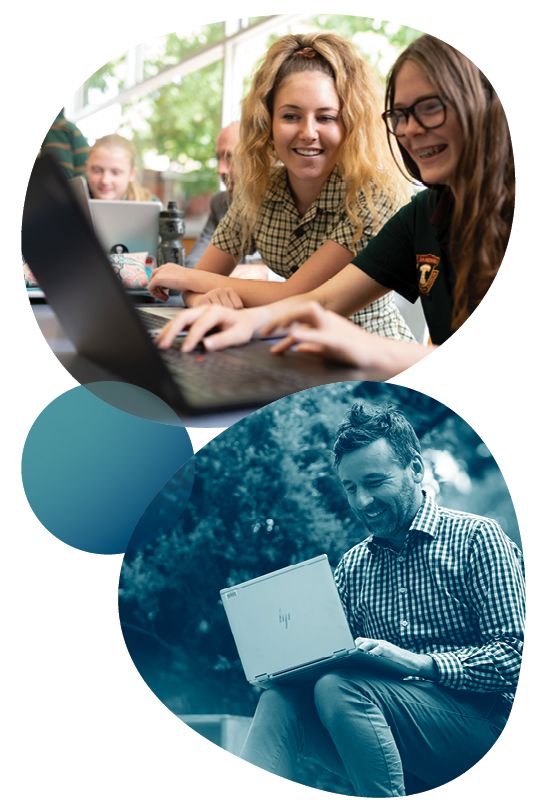
Student devices and internet connectivity
What we’ll do:
We'll support students to have age-appropriate access to devices and internet connectivity for learning when they need it.
How we’ll do it:
Establish a primary school device program to deliver an average digital device access ratio of 1 device per every 3 students in all primary schools. The program will provide a costed per capita amount to primary schools to help purchase devices for use at school.
Establish a secondary school device program to help ensure secondary students have access to personal digital devices for their learning, at school and at home. The program will provide guidance on 1:1 device models at the school level, and a costed per capita amount to each school to support devices for all students who need them.
Provide cost savings to schools and families who purchase devices by leveraging the department’s bulk-purchasing power.
Deliver ongoing internet access for learning at home to all students who don't have it currently.
How we’re tracking:
We'll take preparatory steps in 2023, such as undertaking an audit of existing device access ratios and providing devices to School Card students in years 10 to 12 who need one for their learning. The student device programs will come into operation at the beginning of the 2024 school year.
We'll measure student device access ratios annually.
Our student home internet program has been rolled out and is now in full effect, with home internet solutions provided to students and families where needed.
Staff devices
What we’ll do:
We'll make sure that all staff, including educators, have access to a device that supports their work.
How we’ll do it:
Schools and preschools will provide an up-to-date personal digital device for all educators and support staff, where appropriate to their role. The department will support them with guidance on the types of devices that staff in different settings should have, and with cost savings resulting from our bulk-purchasing power.
How we’re tracking:
In 2023 we'll support schools and preschools with advice on devices where needed. By January 2024, all staff should start receiving their personal devices.
Support to maintain ICT infrastructure
What we’ll do:
We'll provide advice and better support to help schools and preschools maintain their ICT infrastructure, so they can focus on teaching and learning.
How we’ll do it:
Establish formal advice for all schools and preschools on ICT network type, maintenance and replacement (including costs).
Accelerate work to review and uplift digital foundations in metropolitan primary school sites where this hasn’t yet occurred.
How we’re tracking:
In 2023, we'll launch the guidance for schools and accelerate ICT health checks and remediation work currently underway in metropolitan schools, completing this in 2024.
We'll monitor the quality of ICT infrastructure in our schools on an ongoing basis through our Digital Guarantee Unit.

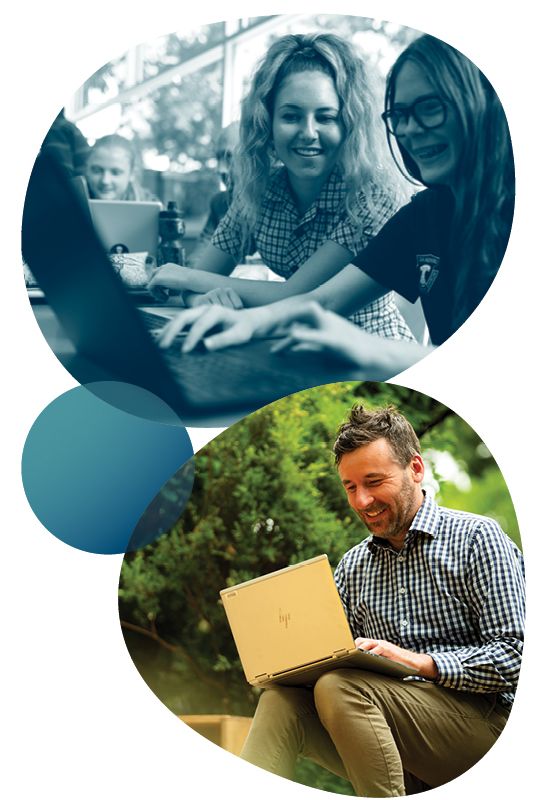
‘We cannot avoid innovation – there needs to be a shared willingness to try, share learnings and collaborate.’
'Tech has given us huge opportunities to do things better. It enables us to communicate effectively with staff, most of whom are part-time, and keep everyone up to date including our families. We are also connecting to other preschools, here, and overseas, showing kids that there is a world outside our area.'
Build our capability
It’s not enough to have access to digital technologies – we need to support our sites and our people to build the skills and capabilities to use them to best effect.

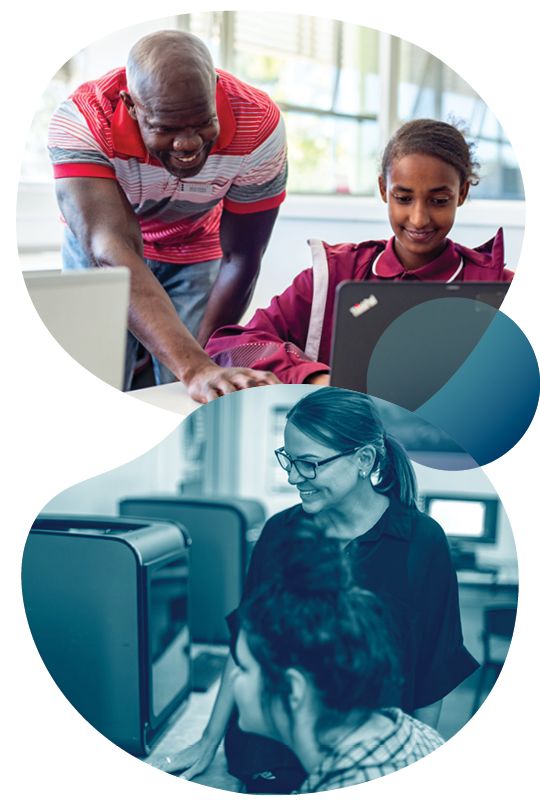
Digital Guarantee Unit
What we’ll do:
We'll establish a multi-disciplinary Digital Guarantee Unit to work with sites to support their digital improvement.
How we’ll do it:
The unit will:
- develop an evidenced-based online tool to empower sites to assess their digital maturity
- support sites to undertake and understand their digital maturity assessment and results
- support sites to implement digital maturity development plans, based on site context and maturity level
- help sites to make sure digital foundations are in place and maintained
- work with leaders in each site to implement development plans
- connect sites to resources built through the digital strategy, as well as other training and expertise.
The unit will tailor resources and support to the needs of each site or partnership.
How we’re tracking:
We'll establish the team and its program resources in the second half of 2024. The unit will work with all schools across our system to support their maturity assessments and improvement from 2024 onwards.
We'll monitor the levels of digital maturity and improvements over time of the schools that use the assessment tool.
Building staff capability
What we’ll do:
We'll establish digital training packages for educators, support and central staff to improve their digital skills in teaching, collaboration and administration.
How we’ll do it:
The training packages will be delivered online and in-person. For educators they'll cover:
- device and software use (tailored to teaching and device type)
- strategies for teaching effectively online
- strategies to integrate technology into learning effectively.
Staff will be encouraged to complete the training:
- when transitioning into the workforce as an educator, helping to ensure that all new teachers have baseline skills, tailored to the technology used at their placement site
- as part of their professional learning, when the digital maturity assessment at their site indicates a need to upskill in this area
- as part of the induction process for central and support staff.
How we’re tracking:
In 2023 we'll build the packages and resources and test them with select schools and central staff. They'll be launched more widely in 2024.
We'll monitor take-up levels of the program, and the digital capability of our workforce more generally.
Support student capability
What we’ll do:
We'll provide training resource packages for students to develop the basic digital skills they need to use digital devices in their learning effectively.
How we’ll do it:
First, we'll develop resource packages for year 4 and year 7.
The resource packages will include information about:
- device care
- cyber safety
- email and video chat
- using key software (email, Microsoft and Google productivity tools) and other technologies that enhance student experience and learning.
The resource packages will also include an online tool to benchmark a student’s digital skills and show areas for development, enabling each student to focus their effort on where it's most needed.
How we’re tracking:
In 2023 we'll develop, test and refine the program and resources. The packages will be launched in 2024.
We'll monitor whether the average level of students’ digital skills improve, as measured through the online tool.

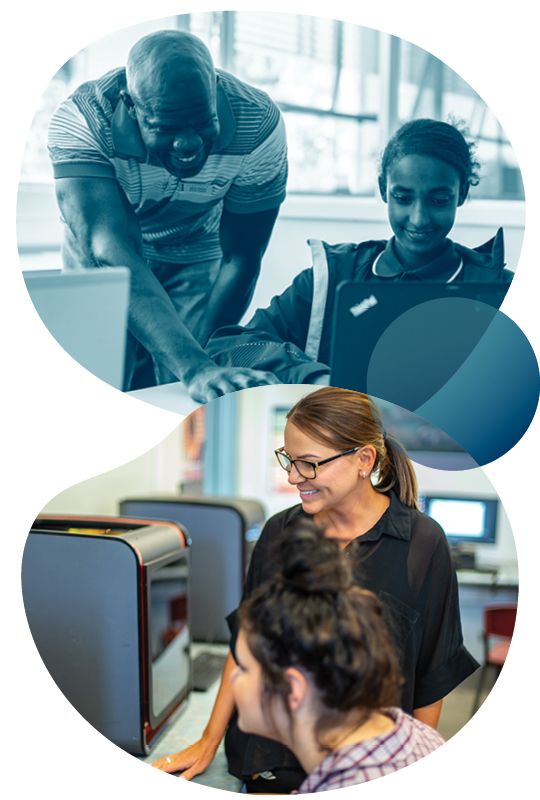
Maximise the benefits of digital technologies for teaching and learning
Technologies present a world of possibilities and can improve and enhance the way students and children learn. We'll focus specifically on supporting our educators to use technologies in ways that deliver better learning outcomes for our students.

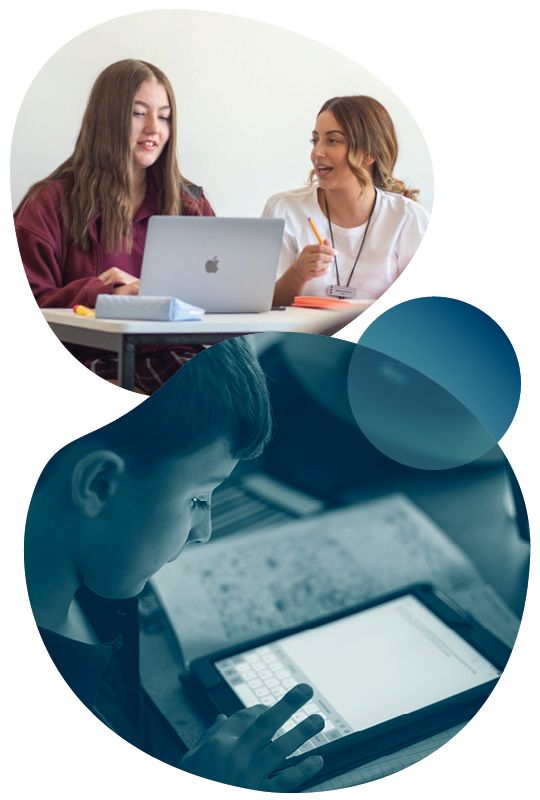
Digital technology teaching advice
What we'll do:
We'll provide educators with best-practice guidance on using digital technologies for teaching and learning.
How we'll do it
We'll integrate high-impact technologies into curriculum resources, starting in 2023 with:
- science years 7 to 10
- digital technologies years 3, 4, 9 and 10.
Moving forward, we'll integrate technologies into curriculum resources on an ongoing basis and in other system-wide teaching and learning advice, where it's relevant and impactful to do so.
How we’re tracking:
The first set of curriculum resources with technology integration will be released in September 2023.
We'll monitor take-up of these resources and feedback from teachers about their usefulness.
Online technology resource hub
What we’ll do:
We'll create a new online technology resource hub to provide best-practice guidance and case studies for purchasing and using digital technology for teaching, learning and operations.
How we’ll do it:
The hub will:
- provide advice and resources for leaders, educators and administrative and support staff about how to use high-quality, evidence-based digital technologies in education
- focus on supporting learning and student administration in preschools and schools
- provide a space for educators and leaders to ask and answer questions about digital technology
- provide an option to purchase hardware or software that schools and preschools can be confident has been approved for use in department sites, and through which they can save money using the department’s bulk-buying power
- provide a service that allows sites to borrow or rent technologies to test them out before deciding whether to buy them
- share the results of our new program that'll trial innovative digital technologies.
How we’re tracking:
We'll develop the content and format of the platform in the first half of 2023, and launch an initial version in the second half of the year. Content will continue to be developed and included over time.
We'll monitor the level of website traffic, the satisfaction levels of users, the amount of information sharing by users, and the amount of purchasing and borrowing through the hub.

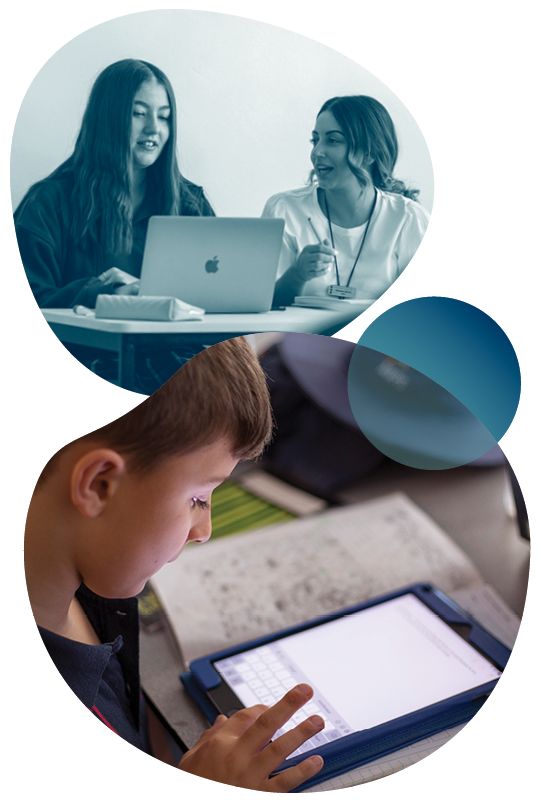
Streamline and modernise our operations
Our core business is teaching and learning. By working smarter, not harder, we can be more effective and free up administrative time to focus on children and young people.

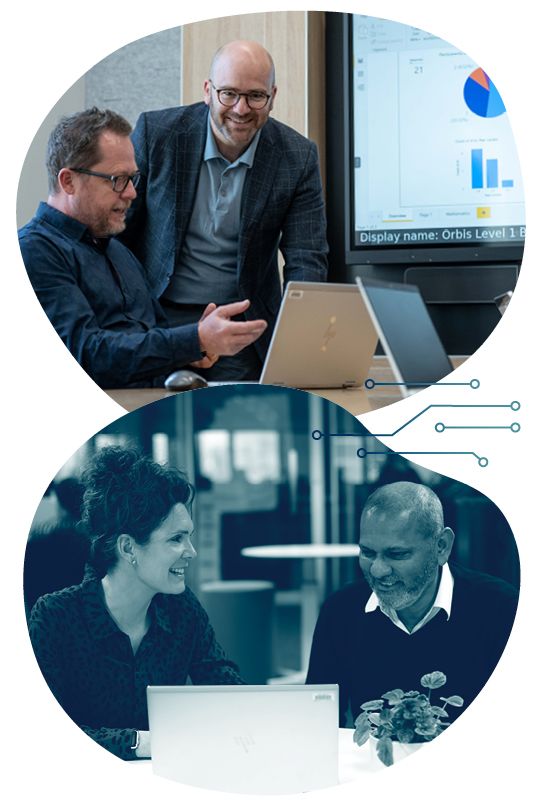
School business improvement support
What we'll do:
We'll provide schools and preschools with better support to identify opportunities to improve business operations and technology deployment, freeing up time to focus on teaching and learning.
How we’ll do it:
We will:
- continue to implement system-wide business improvement initiatives, with a particular focus on school and preschool business processes
- tailor the support to the needs of the site, from providing consultation and advice through to embedding a senior analyst in the site to identify opportunities and solutions
- capture learnings from these initiatives and apply them more broadly across the system.
How we’re tracking:
The program is already underway and will continue across 2023 onwards.
We'll review the improvements in schools and preschools and how we've captured and addressed systemic issues that we've identified.

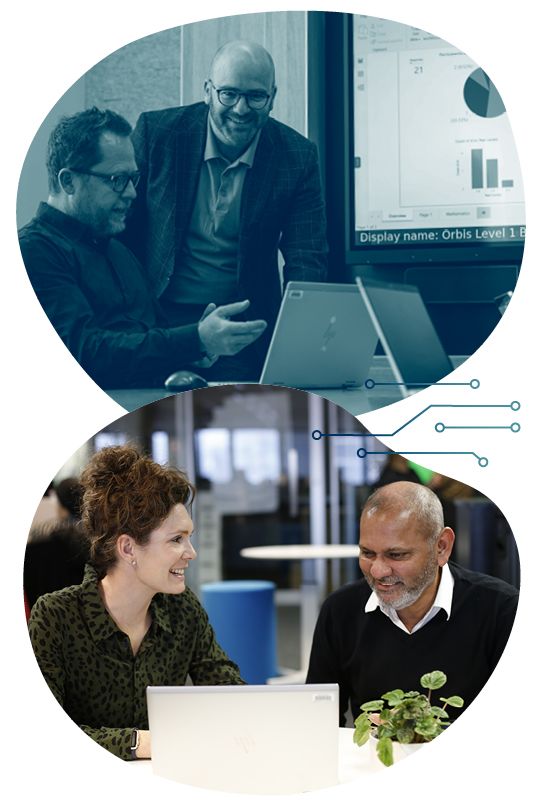
Mobilise ICT support where it’s needed
Our goal is to make sure ICT support is always readily available, when and where our people need it.

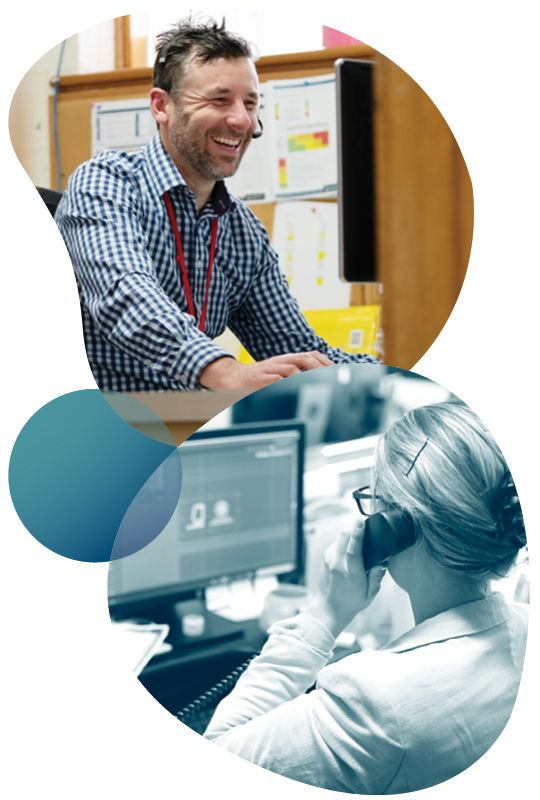
ICT support
What we'll do:
We'll make sure every site has access to appropriate ICT support, tailored to their needs.
How we’ll do it:
We'll continue to refine and grow our centrally managed, externally provided, opt-in ICT service offering for metropolitan schools to complement the existing Regional Support Model.
We'll pursue traineeship options for ICT technical support, particularly in regional areas – drawing people from the community and employing them in their community. Traineeships will provide a pathway for students into the ICT industry.
How we’re tracking:
We'll continue to build out the program in 2023 and onwards.
We'll review levels of satisfaction with the ICT support service once it's operational.

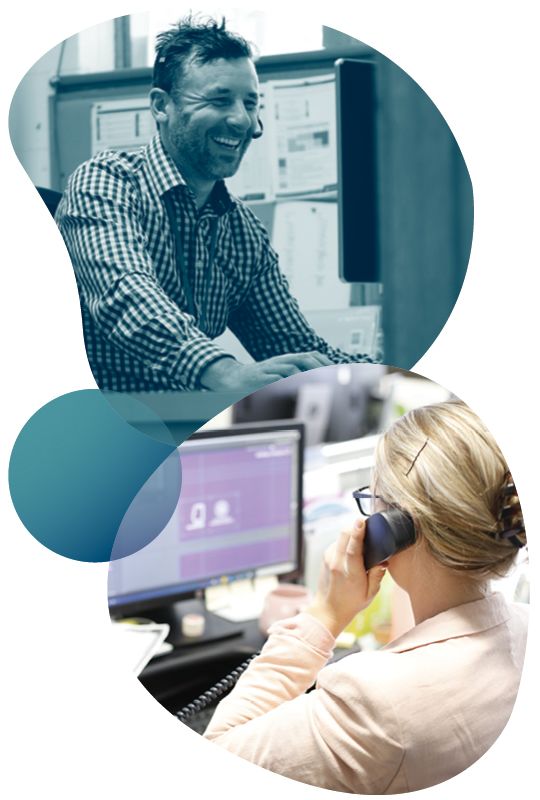

How digital technologies will empower schools and preschools to deliver world-leading education
Digital Strategy competition
3 tech prizes were to be won in our 2022 competition – congratulations to the following schools for their winning submissions:
Peterborough Primary School
Prize 1 VR/AR Education Kit with 30 headsets and devices + Augmented Reality Core upgrade + Ricoh Theta SC2 camera + professional development day for teachers.
Port Elliot Primary School
Prize 2 (regional) pop-up Lumination Learning Lab at your school + Department for Education Future Education Kit (VR/AR technology, drones, VR creation 360° camera, and robotics).
Banksia Park International High School
Prize 3 (metro) full-day class excursion to Lumination Learning Lab + Department for Education Future Education Kit (VR/AR technology, drones, VR creation 360° camera, and robotics).


